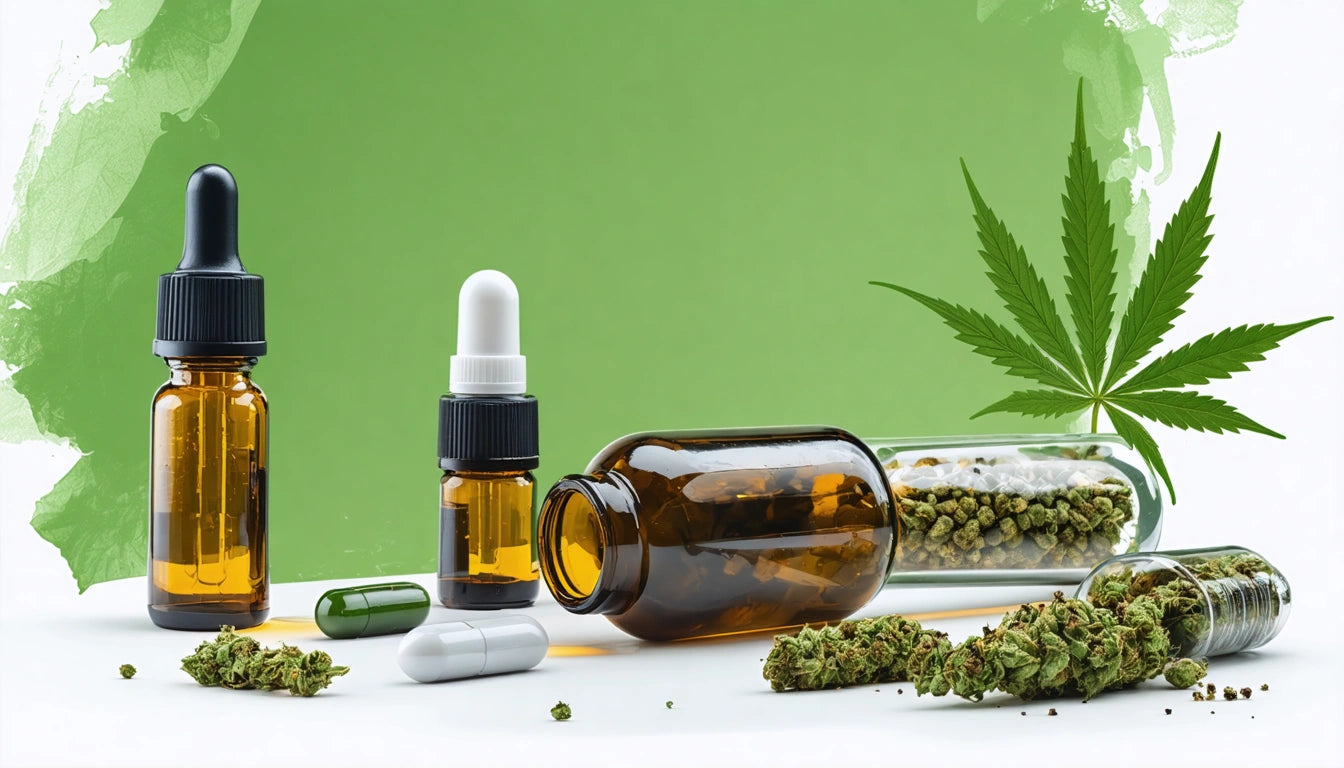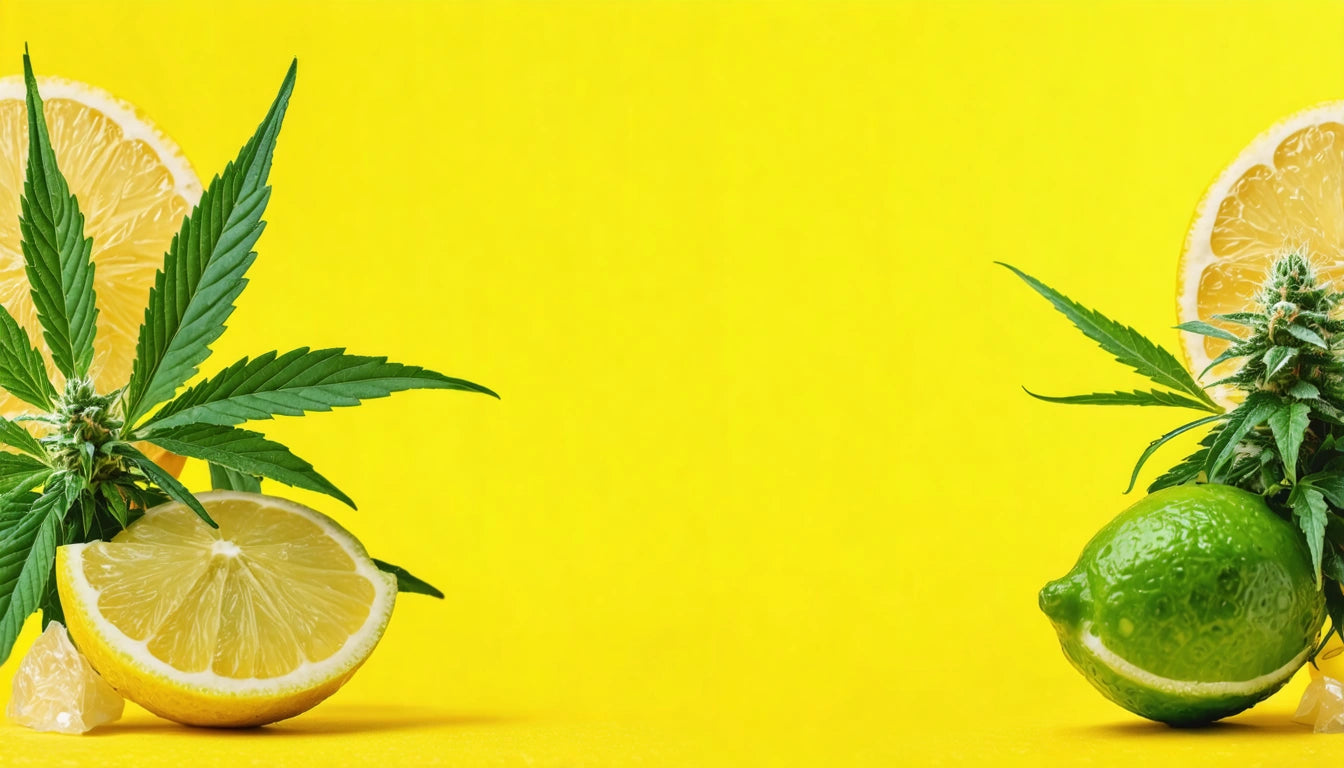Does THCA Impact Drug Test Results?
The rising popularity of THCA products has created confusion about their impact on drug testing. Many consumers wonder: will THCA make you fail a drug test? This comprehensive guide explores how THCA interacts with drug screening methods and what cannabis consumers should know before their next test.
Understanding THCA and THC
THCA (tetrahydrocannabinolic acid) is the non-psychoactive precursor to THC found naturally in raw and live cannabis. When cannabis is heated through smoking, vaping, or cooking, THCA undergoes decarboxylation, converting to THC (tetrahydrocannabinol), the compound responsible for marijuana's psychoactive effects.
According to research on THCA transformation, nearly all THCA converts to THC when smoked or vaporized. This chemical conversion is critical to understanding potential drug test implications.
How Drug Tests Detect Cannabinoids
Standard drug tests don't specifically look for THC itself but rather for THC-COOH (11-nor-9-carboxy-THC), a metabolite produced when your liver processes THC. This distinction is crucial because THCA must first convert to THC before your body can metabolize it into the compounds that trigger positive test results.
Detection Windows
Detection windows vary based on several factors:
- Single use: 3-4 days
- Moderate use (4 times/week): 5-7 days
- Daily use: 10-15 days
- Heavy, chronic use: 30+ days
These timeframes can be significantly affected by individual metabolism, body fat percentage, and hydration levels.
Factors Influencing THCA Detection
Several variables affect whether THCA consumption might lead to a positive drug test:
Consumption Method
How you consume THCA dramatically impacts conversion to THC:
- Smoking/vaping: Nearly complete conversion to THC
- Edibles: High conversion rate during cooking
- Raw consumption: Minimal conversion without heat
For flower products, proper storage is essential to maintain cannabinoid integrity. Many consumers use humidity control packs to preserve freshness and potency while preventing degradation that could affect THCA content.
Frequency and Quantity
Regular users accumulate more metabolites in their system. THC and its metabolites are fat-soluble, meaning they're stored in fat cells and released gradually over time, potentially extending detection windows for frequent users.
Common Types of Drug Tests
Different testing methods have varying sensitivity levels for detecting cannabis metabolites:
Urine Tests
The most common screening method, urine tests typically detect THC-COOH for 3-30+ days depending on usage patterns. These tests can't distinguish between THC from traditional marijuana and THC converted from THCA.
Blood Tests
Blood tests detect active THC rather than metabolites, offering a shorter detection window (typically 1-2 days). They're more commonly used in medical settings or cases requiring precise timing of consumption.
Saliva Tests
These detect recent use, typically within 24-72 hours, making them popular for roadside or workplace testing for current impairment rather than historical use.
Hair Tests
Hair follicle tests can detect THC metabolites for up to 90 days but don't effectively measure recent or occasional use.
As this guide on THC testing explains, standard tests cannot differentiate between THC sources, whether from traditional marijuana or THCA products.
Risk Assessment for THCA Users
The question "can you pass a drug test smoking THCA?" has a straightforward answer: probably not. When THCA is smoked, it converts to THC, which will be metabolized and detected by standard drug tests.
Even products marketed as "THCA flower" or "THCA concentrates" will likely cause positive test results when consumed in ways that involve heat. The legal distinction between THCA and THC may exist on paper, but your body processes them identically once conversion occurs.
For those asking "will THCA fail a drug test," consider that THCA itself may not trigger positive results, but its converted form (THC) certainly will.
Practical Considerations for Cannabis Consumers
If you're subject to drug testing, consider these practical guidelines:
- Abstinence remains the only guaranteed method to pass a drug test
- Be wary of claims that THCA products won't cause positive test results
- Understand that even secondhand exposure can potentially trigger positive results in some circumstances, as noted in this article on secondhand exposure
- Consider the potential consequences of failing a drug test before consuming any cannabis product
The distinction between THCA and THC matters legally and chemically, but for drug testing purposes, consuming products containing either compound presents similar risks. Understanding this reality allows consumers to make informed decisions based on their specific circumstances and testing requirements.











Leave a comment
All comments are moderated before being published.
This site is protected by hCaptcha and the hCaptcha Privacy Policy and Terms of Service apply.